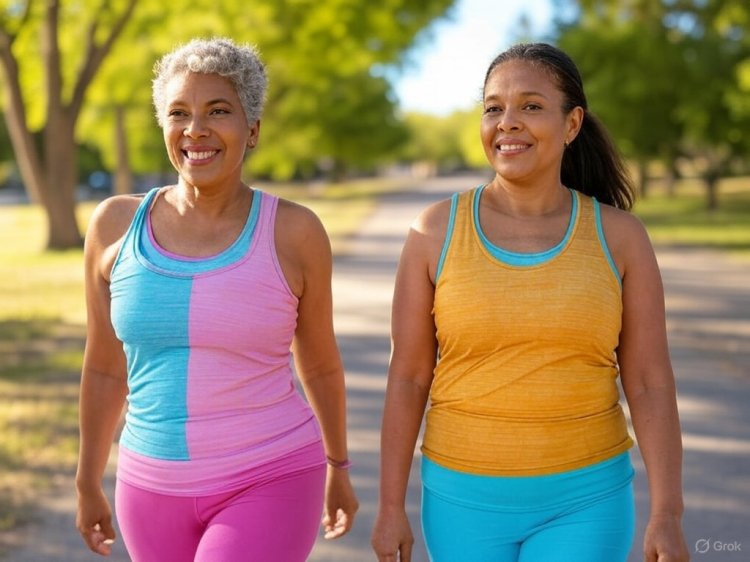Small Fitness Improvements: Reducing Biological Age and Boosting Longevity

Biological age—how old your body seems based on its physical and cellular health—can differ significantly from your chronological age. While aging is inevitable, small, consistent fitness improvements can slow biological aging, enhance vitality, and extend life expectancy. By making incremental changes to your exercise routine, you can turn back the clock on your body’s aging process.
Understanding Biological Age
Unlike chronological age, which ticks forward relentlessly, biological age reflects the health of your cells, organs, and systems. Factors like muscle mass, cardiovascular fitness, and inflammation levels influence it. A 2023 study in Nature Aging found that higher physical fitness correlates with a younger biological age, often by 5-10 years. Exercise improves metrics like VO2 max (oxygen uptake efficiency), muscle strength, and telomere length—key indicators of cellular aging. Even modest fitness gains can shift these markers, making your body function as if it were younger.
The Power of Incremental Gains
You don’t need to become an athlete to reap anti-aging benefits. Small improvements, like adding 10 minutes of brisk walking daily or doing bodyweight exercises twice a week, can make a difference. A 2021 study in The Lancet showed that just 15 minutes of moderate exercise daily reduces all-cause mortality by 14%. Walking at a pace that slightly elevates your heart rate improves cardiovascular health, lowering blood pressure and resting heart rate—both tied to a younger biological age. Similarly, simple strength exercises, like squats or push-ups, preserve muscle mass, which naturally declines by 3-5% per decade after age 30. These small steps compound over time, enhancing resilience and longevity.
Exercise and Cellular Health
At the cellular level, exercise slows aging by protecting telomeres—the protective caps on chromosomes that shorten with age. Shortened telomeres impair cell division, accelerating aging. A 2022 study in Cell Metabolism found that regular aerobic exercise, even at moderate levels, helps maintain telomere length by reducing oxidative stress and inflammation. Adding two 20-minute jogs or bike rides weekly can boost antioxidant production, shielding cells from damage. Resistance training also plays a role by increasing growth hormone levels, which support tissue repair and slow muscle loss, keeping your body youthful.
Mental and Systemic Benefits
Fitness improvements also enhance brain health and systemic function, further reducing biological age. Exercise boosts blood flow to the brain, promoting neuroplasticity and reducing cognitive decline risk. A 2024 Journal of Neurology study linked regular physical activity to a 30% lower risk of dementia in older adults. Systemically, exercise improves insulin sensitivity and reduces visceral fat, both of which prevent age-related diseases like diabetes and heart disease. Even modest weight loss—5% of body weight—through consistent movement can lower inflammation markers like C-reactive protein, a key driver of aging.
Building a Sustainable Habit
The key to longevity lies in consistency, not intensity. Start with achievable goals: take stairs instead of elevators, do a 10-minute yoga flow, or try chair exercises if mobility is limited. Aim for 150 minutes of moderate activity weekly, as recommended by the World Health Organization, but break it into manageable chunks. Track progress with a fitness app or journal to stay motivated. Over time, these small habits become second nature, delivering outsized benefits for your biological age.
Summary
-
Biological Age Matters: It reflects your body’s health and can be younger than your chronological age with fitness improvements.
-
Small Steps Count: Just 15 minutes of daily exercise, like walking or bodyweight moves, reduces mortality and slows aging.
-
Cellular Protection: Moderate aerobic and strength exercises preserve telomeres and reduce inflammation, keeping cells youthful.
-
Brain and Body Benefits: Exercise enhances cognitive health, insulin sensitivity, and fat loss, lowering disease risk.
-
Consistency Wins: Sustainable, incremental habits—150 minutes of weekly activity—deliver long-term longevity gains.
By embracing small fitness improvements, you can reduce your biological age, enhance your quality of life, and add years to your lifespan. Start today, and let each step move you closer to a younger, healthier you.